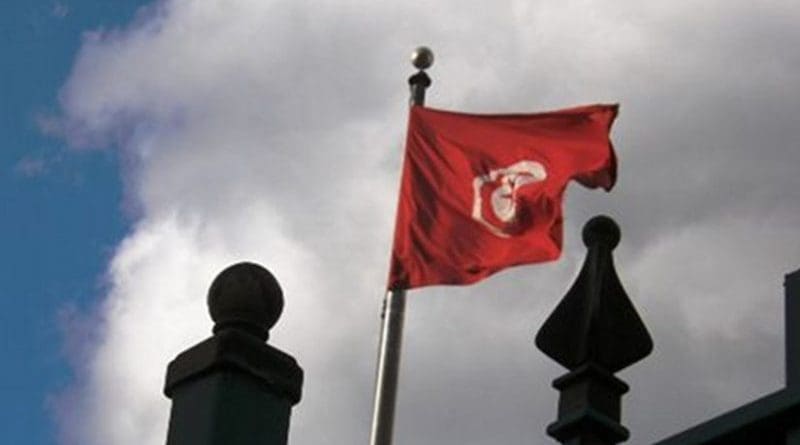Another Tidal Wave Is Needed
he spark that the impoverished Tunisian fruit peddler, Mohammed Bouazizi, lit in his self-immolation act in protest for his mistreatment and humiliation by a policewoman is still ablaze within many of the Arab regimes anciens, regrettably abundant in the Arab World. Already two discredited presidents – Hosni Mubarak of Egypt and Zine El Abidine Ben Ali of Tunisia – have been kicked out of office and a third, the “delusional” leader of Libya, Moammar Gaddafi, is expected to follow suit anytime soon.
Still, other Arab leaders are encountering similar unprecedented upheavals. A “day of rage” is now scheduled for March 11 in Riyadh, the Saudi Arabian capital. Even Lebanon has had a similar demonstration last week that called loudly for the abolition of sectarianism in the country where all positions within the civil service are divided in accordance with a formula based on religious affiliations.
These revolutions have attracted world-wide attention but disgustingly prompting some shaky autocrats and monarchs to bribe their way by offering bonuses or donations in the far-fetched hope that their citizens will calm down.
But the upheaval of the Arab youth, representing more than 60 percent of their fellow citizens in most Arab countries, has been hailed world-wide for their commitment and drive to lead a dignified life. It is too early to tell how successful their efforts would be but so far their determination to have serious reforms introduced without delay saw the resignation this week of the long-time Tunisian prime minister and five members of his cabinet, putting to an end the worst political crisis in the country since the president was forced out of his office several weeks ago. Egypt’s Prime Minister Ahmed Shafiq, a Mubarak appointee may also step down since he was criticized publicly last week in a large demonstration in Cairo’s Tahrir Square.
Although these radical changes are reassuring, it is time for a serious look at other much-needed radical reforms with the Arab media establishment. Much as al-Jazeera and other television networks have been highly praised for their splendid coverage of the uprisings, it is important to remember that most, if not all, Arab news outlets are financially supported by governments or members of ruling families or elites.
The success of social media in bringing about the recent radical and political changes in some Arab countries has been exhilarating, but there is more to be done in this respect. Israel, for example, reported the Electronic Intifada, is investing $1.6 million to train more than a hundred Israeli “media warriors,” who would use social media tools to disseminate Israeli propaganda to audiences around the world. An Israeli official explained that Israeli soldiers are now forced to be more aware of the fact that new media users can be documenting their actions at all times, implying that some me be illegal.
The print media in the Arab world is much in need of several shots in the arm, particularly genuine investment so that they remain independent and free to express their views loudly and clearly, and avoid serving as undeclared organs of autocrats. At the same time, training courses should be made available, especially to young staffers, in all aspects of journalism. There are several institutions in the West that are eager and willing to provide seminars for would-be journalists since very few universities in the Arab countries have journalism schools.
It has been noticeable lately that few American newspapers have started to engage Arab journalists to help them in covering the turbulent Arab countries – a step that will help in correcting the Arab image in the U.S.
Professor Rashid Khalidi, professor of Arab Studies at Columbia University, has noted an important change in Western media in an article in Foreign Policy. He wrote, “the same mainstream western media that habitually conveys a picture of a region peopled almost exclusively by enraged, bearded terrorist fanatics who ‘hate our freedom’ has begun to show images of ordinary people making eminently reasonable demands for freedom, dignity, social justice, accountability, the rule of law and democracy.”
He added, “Arab youth at the end of the day have been shown to have hopes and ideals not that different from those of young people who helped bring about democratic transitions in Eastern Europe, Latin America, and South, Southeast and East Asia.”
There are more than 50 Arab journalists in Washington reporting to Arab news outlets and for many of these it was the first time to see how non-Arab newsmen handle themselves in close encounters with U.S. leaders and officials without feeling intimidated, as is often the case in third-world countries.
The tidal wave that has hit the Arab world is also needed to penetrate the Arab media, sooner rather than later since the ongoing reshuffle is slowly affecting every aspect of life in this all-important region.

